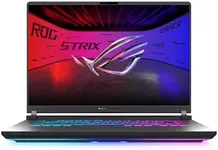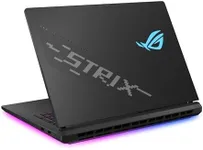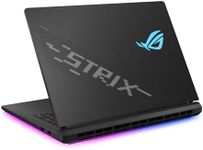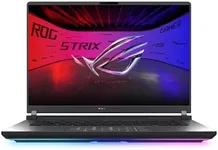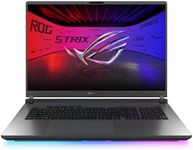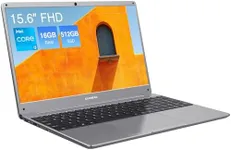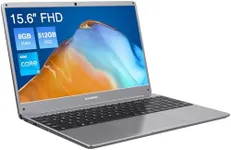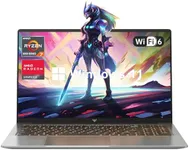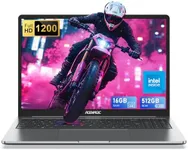Buying Guide for the Best Asus Gaming Laptops
When choosing an ASUS gaming laptop, it's important to consider several key specifications to ensure you get the best performance and experience for your gaming needs. Gaming laptops are designed to handle high-performance tasks, so understanding these specs will help you make an informed decision. Here are the key specs you should focus on and how to navigate them to find the best fit for you.Processor (CPU)The processor, or CPU, is the brain of your laptop and is crucial for overall performance. For gaming, you need a powerful CPU to handle complex game mechanics and multitasking. CPUs are typically divided into segments like Intel Core i5, i7, and i9, or AMD Ryzen 5, 7, and 9. For casual gaming, an Intel Core i5 or AMD Ryzen 5 should suffice. For more demanding games and multitasking, consider an Intel Core i7 or AMD Ryzen 7. For the best performance, especially for high-end gaming and future-proofing, an Intel Core i9 or AMD Ryzen 9 is ideal.
Graphics Card (GPU)The graphics card, or GPU, is responsible for rendering images and videos, making it one of the most important specs for gaming. A powerful GPU ensures smooth gameplay and high-quality visuals. GPUs are categorized into entry-level, mid-range, and high-end. Entry-level GPUs like NVIDIA GTX 1650 are suitable for less demanding games. Mid-range GPUs like NVIDIA RTX 2060 or 3060 offer better performance for most modern games. High-end GPUs like NVIDIA RTX 3070 or 3080 are ideal for the latest AAA games and VR gaming. Choose a GPU based on the types of games you play and the visual quality you desire.
RAMRAM (Random Access Memory) is essential for multitasking and running games smoothly. More RAM allows your laptop to handle more tasks simultaneously without slowing down. Gaming laptops typically come with 8GB, 16GB, or 32GB of RAM. For casual gaming and everyday use, 8GB is usually enough. For more demanding games and multitasking, 16GB is recommended. For the best performance and future-proofing, especially if you plan to stream or use heavy applications, 32GB is ideal.
StorageStorage determines how much data you can store on your laptop, including games, applications, and files. There are two main types of storage: HDD (Hard Disk Drive) and SSD (Solid State Drive). SSDs are faster and more reliable but usually more expensive. For gaming, an SSD is highly recommended for faster load times and better overall performance. Storage capacities typically range from 256GB to 1TB or more. Choose a capacity based on the number of games and files you plan to store. A 512GB SSD is a good balance for most gamers, but if you have a large game library, consider 1TB or more.
DisplayThe display affects your visual experience and immersion in games. Key factors include screen size, resolution, and refresh rate. Screen sizes typically range from 15 to 17 inches. A 15-inch screen is more portable, while a 17-inch screen offers a larger viewing area. Resolution options include Full HD (1920x1080), QHD (2560x1440), and 4K (3840x2160). Full HD is sufficient for most gamers, but QHD and 4K provide sharper images. Refresh rate, measured in Hz, affects how smoothly motion appears on the screen. A higher refresh rate (120Hz, 144Hz, or 240Hz) is better for fast-paced games. Choose based on your preference for portability, visual quality, and smoothness.
Battery LifeBattery life determines how long you can use your laptop on a single charge. Gaming laptops typically have shorter battery life due to their high-performance components. Battery life can range from 3 to 8 hours or more. If you plan to use your laptop primarily while plugged in, battery life may be less critical. However, if you need portability and plan to game on the go, look for a laptop with longer battery life. Keep in mind that gaming will drain the battery faster than other tasks.
Cooling SystemA good cooling system is essential to prevent overheating and maintain performance during long gaming sessions. Gaming laptops use various cooling technologies, such as multiple fans, heat pipes, and advanced thermal designs. A laptop with an efficient cooling system will run cooler and quieter, providing a better gaming experience. Look for laptops with good reviews on cooling performance, especially if you plan to game for extended periods.
Keyboard and Build QualityThe keyboard and build quality affect your comfort and durability of the laptop. Gaming laptops often feature backlit keyboards with customizable RGB lighting, which can enhance your gaming experience. Key travel and tactile feedback are also important for comfortable and responsive gameplay. Build quality ensures the laptop can withstand regular use and transport. Look for a sturdy chassis and high-quality materials. Consider your preferences for keyboard feel and the overall durability of the laptop.

